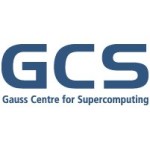Today the European PRACE initiative announced that their 14th Call for Proposals yielded 113 eligible proposals of which 59 were awarded a total of close to 2 thousand million core hours. This brings the total number of projects awarded by PRACE to 524. Taking into account the 3 multi-year projects from the 12th Call that were renewed and the 10 million core hours reserved for Centres of Excellence, the total amount of core hours awarded by PRACE to more than 14 thousand million. “The 59 newly awarded projects are led by principal investigators from 15 different European countries. In addition, two projects are led by PIs from New Zealand and the USA.”
GCS in Germany Allocates Record Number of Core Hours for Research
The Gauss Centre for Supercomputing (GCS) in Germany has allocated a record 1,648 million core hours of computing time to 21 scientifically outstanding national research projects as part of its Call for Large-Scale Projects. “GCS is excited to support simulation projects of these excelling scopes as they clearly underline our claim of Germany being a world leader in High Performance Computing. Beyond dispute, they produce proof of us being at eye level with the largest international research projects such as the INCITE Program supported by the Office of Science of the U.S. Department of Energy,” states Prof. Thomas Lippert of JSC, GCS Chairman of the Board.”
GCS Centres Successfully Complete Extreme Scaling Workshops
Results are now in from Extreme Scaling Workshops held recently at the Gauss Centres for Supercomputing in Germany. With 20 participating teams, the workshops were designed to improve the computational efficiency of applications by expanding their parallel scalability across the hundreds of thousands of compute cores of the GCS supercomputers JUQUEEN and SuperMUC.
Supercomputing the Mass Difference of Neutron and Protons
Researchers using the JUQUEEN supercomputer have computed the small mass difference between protons and neutrons. The fact that the neutron is slightly more massive than the proton is the reason why atomic nuclei have exactly those properties that make our world and ultimately our existence possible. The fact that the neutron is slightly more massive […]





